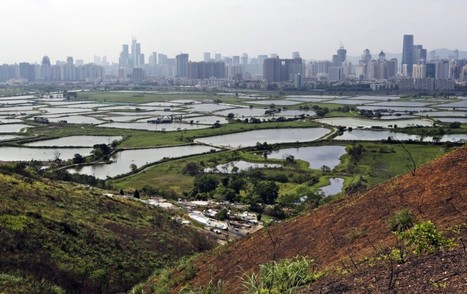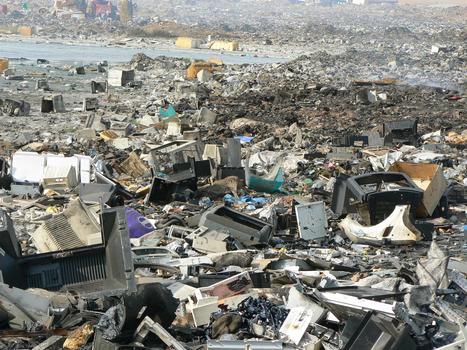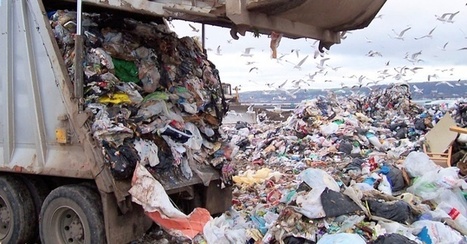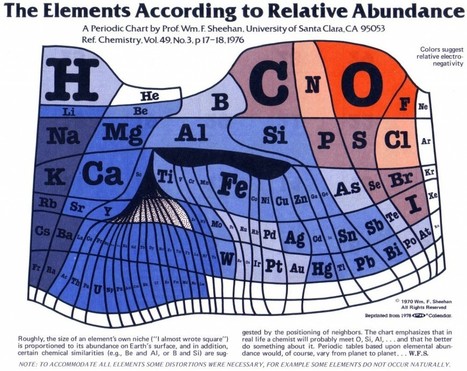In Madagascar, the booming charcoal business is contributing to deforestation and may exacerbate the effects of global warming.
Research and publish the best content.
Get Started for FREE
Sign up with Facebook Sign up with X
I don't have a Facebook or a X account
Already have an account: Login
 Your new post is loading... Your new post is loading...
 Your new post is loading... Your new post is loading...
brielle blais's curator insight,
April 26, 2018 11:45 AM
This post shows how climate change is currently impacting small island nations such as the Marshall Islands. Pacific Sea waters are rising and driving families out of their homes. It is changing the entire physical geography of the land. It is also changing the political climate between different nations as the battle over climate control continues and countries react in different ways to ideas and suggestions, or even laws stating nations like the United States would have to pay money to help those other countries being flooded.
David Stiger's curator insight,
December 7, 2018 11:00 AM
Catastrophic property destruction from sea level rising is (at this point in time) inevitable. A number of Islands that serve as homes for hundreds of thousands of people will be devastated and most likely destroyed. These spots will become uninhabitable and dangerous. The Marshall Islands is just one area that will suffer this fate. Trying to save the islands is a moot point. What is now needed is a discussion about ethics and fiscal responsibility. Industrialized and developed nations led the way in destroying parts of the planet and should be held accountable. To become wealthy, these affluent nations collectively sacrificed the world's fragile environment. With this understanding, people of the Marshall Islands should be given a new home and compensation for their losses. Fortunately, the United States has a deal with the Marshall Islands to allow people to immigrate to the U.S. While this is a good start, these people will require job training, education, homes, transportation, and funds to rebuild their lives. Instead of spending massive amounts of tax dollars on military and defense budgets, Congress needs to reassess its values and priorities. By committing to ethical and noble leadership, the U.S. will have more international prestige and leverage to build defense coalitions and negotiate through diplomatic means. An immense single-nation military-industrial complex will be less relevant. By reducing military spending, this country can address problems like the sinking Marshall Islands and our nation's energy needs. How would it look if the U.S. became a true champion of justice and a despotic nation like China attacked the U.S.? The world would be outraged. The U.N. would condemn the aggressor. Alliances could step forward, allowing America to step back as the world police officer which no one ever asked us to be.
Stevie-Rae Wood's curator insight,
December 9, 2018 11:03 PM
Islands are already at a disadvantage of losing land for a few reasons. First the fact that the older the island gets the more corroding that takes place under the sea. Another reason is they are in the middle of no where so relocation is not easy, costly and not many countries these days are willing to take people in. The Marshall islands like I am sure many other islands are facing in recent years is global warming causing sea levels to rise. So know they have another reason to worry about losing lands. The global warming that takes place on earth never effects the contributors, it almost always effects the little guys who cannot doing anything to fight back. They just get to watch there homes be destroyed because of big time nations. More attention needs to be brought to the subject of global warming and everything and one who is negatively effected by it. What if we were in there shoes, we surely would change our ways then.
Jeremy Hansen's curator insight,
November 10, 2015 11:37 AM
Maybe getting that new iPhone isn't such a good idea, eh?

GTANSW & ACT's curator insight,
November 6, 2015 5:22 PM
Areas of proaction and consumption / glean connections between places |

16s3d's curator insight,
November 23, 2015 7:16 AM
Morphisme du tableau périodique des éléments en fonction de leur abondance |




































Deforestation drivers